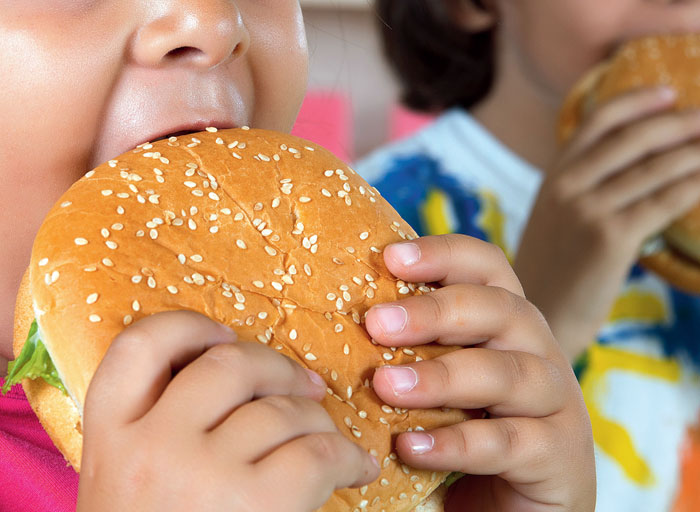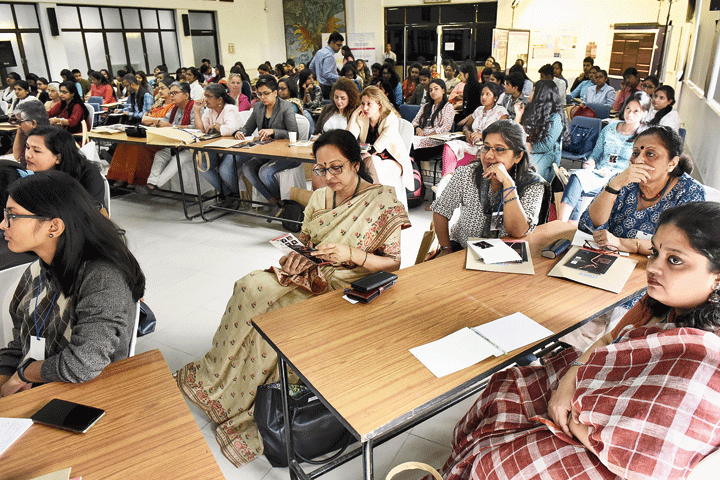Childhood obesity is a serious medical condition that is affecting adolescents and children alike across the globe and is common in India to. Obese children have bigger builds for their age. Among the reasons for the condition heredity/genes, developmental influences and environmental factors top the list.
According to a study, India has the second highest number of obese children in the world with 14.4 million reported cases. Some factors that have contributed to this is the replacement of home-cooked tiffins with canteen food, aggressive advertising by processed food and beverage brands, as well as a societal shift to screen time instead of actual physical play time.
If not controlled, childhood obesity can increase the risk of hypertension, osteoarthritis, elevated cholesterol, type 2 diabetes, coronary disease, stroke, gallbladder disease, respiratory problems, and so on. Beyond this, obesity also hampers a child’s overall development and contributes to lowered self-esteem and depression. Every two in three obese children will remain obese as adults and are at a greater risk of developing adult lifestyle diseases.
Children do what they see and adapt very quickly to their environment. So it’s important for parents to take the lead and help children incorporate healthier habits at the onset itself, when their child’s malleability scale is comparatively higher. Here are a few tips that will help parents manage a child’s obesity.

Children do what they see and adapt very quickly to their environment. So it’s important for parents to take the lead and help children incorporate healthier habits at the onset itself, when their child’s malleability scale is comparatively higher.
Madhuri Ruia

By making your kid join something he/she enjoys, physical activity will be something the child will be looking forward to iStock
Promote nutritious and well-portioned meals
Children are often attracted to processed food, which have refined sugar, fats (especially trans fats) and salt. The consumption of this type of food can have side effects on weight and growth in the long run. It’s important for you to keep an eye on your child’s daily diet, both at home and outside.
A good way to start this is by ensuring that your child enjoys his/her meals and that it’s portioned appropriately for a single person. Incorporating food that is rich in protein and energy in the diet of a growing child is essential. Healthy eating includes consuming more fruit, vegetables, meat, wholegrains, eggs, and nuts like almonds.
It is also advised to limit the consumption of saturated fats and bad cholesterol and instead shift to unsaturated fats and energy-giving food. Timely meals also streamline the routine of the kids to eat when they are hungry and not bored.
Teach your child to snack right
Growing children tend to develop a higher appetite that makes them hungry frequently through the day. In a scenario like this, mothers can incorporate healthy snacking in their dietary habits instead of curbing hunger, which can hamper growth. Nuts, such as almonds, are a great replacement for unhealthy snacks as they may have satiating properties that promote feelings of fullness, which will help keep your kid full between meals and limit their appetite for fried, unhealthy snacks. You can also opt for fruits, oats, makhanas or fresh juices, and inculcate conscious snacking habits in your child from early on, as he/she is likely to follow it forever. This will not just help control weight, but also help in leading a more nutritious and healthy lifestyle.
Let your child choose a form of exercise
Due to academic pressure and distractions caused by TV, mobile phones and video games, maintaining your child’s physical activity can be a challenge. However, a minimum of 60 minutes of physical activity a day is vital in leading a healthy and fit lifestyle. This need not be by making them jog every day or enrolling them at a gym — you can instead work with your child to understand his/her interests and accordingly choose a form of exercise that he/she is likely to enjoy. Whether it’s mandatory playtime for 60 minutes in the park, choosing to learn a form of classical or modern dance, learning to play a sport or cycling — by making your kid join something he/she enjoys, physical activity will be something the child will be looking forward to. These activities will also help build strength and stamina.
Replace ‘screen time’ with ‘family time’
In the past two decades we have seen the influence and hold that technology has on us and how it impacts our daily choices. Television advertisements are aggressively used by brands to attract and persuade consumers for their commercial interests. These days, brands are actively directing marketing tools towards kids since they have the ability to drive indirect sales. In the process, kids are observing these products and developing a drive to own them.
Televisions, gaming rigs and smartphones collectively form roadblocks in the holistic development of children as they drive them away from physical activities and encourage a lazy ecosystem.
Children who spend more than four hours on these tools are more likely to be overweight, develop bad habits, show aggressive behaviour and fear that the world is scary and that something bad would happen to them. A good way to counter this is by setting limits on daily screen time, and instead replacing it with quality family time where parents and kids can come together and play games, talk about themselves, their day and also important news around them. Not only will this help restrict engagement and dependence on the screen, but it will also help kids to become more aware, alert and strengthen the parent-child relationship.

Children who spend more than four hours on these tools are more likely to be overweight, develop bad habits, show aggressive behaviour and fear that the world is scary and that something bad would happen to them.
Madhuri Ruia
Avoid using food as a punishment or reward
For a lot of parents, food, especially sweets or snacks, become a form of punishment or reward for children. By positioning food as reward for a good deed, we set wrong expectations and unknowingly contribute in building an unhealthy emotional connection with food and feeling good. Beyond this, it also interferes with a child’s natural ability to regulate their eating which can have a negative impact over time. If you do this with your son/daughter, stop right away and instead reward them with things that would help in their growth, like a visit to the zoo, a play date with a friend or a special learning toy.
Support your child, no matter what
Your child’s obesity shouldn’t be a reason for you to feel embarrassed and what you feel or how you treat the issue will have a large impact on how they perceive themselves in the future. While you help them on their journey to a healthier lifestyle, do it for the right reasons — and try not to let materialistic nuances like beauty, or fitting into the ‘cooler’ types of clothes be the motivator here. How you deal with your child’s weight issues will define how he/she perceives himself/herself. Maintaining a positive and supportive approach is the most important and effective way to drive good results.
Madhuri Ruia is a Pilates expert, a diet and nutrition consultant and an alumnus of the American Academy of Nutrition. She is also the author of Who Stole My Calories?












